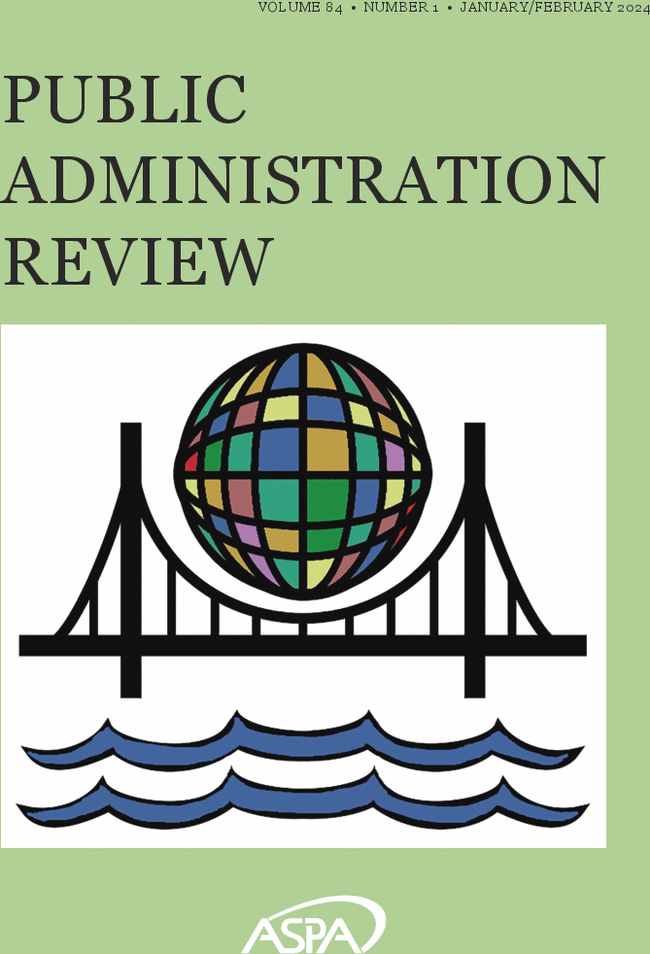通过行政机构影响行政决策
IF 6.1
1区 管理学
Q1 PUBLIC ADMINISTRATION
引用次数: 0
摘要
美国的民选行政长官,即州长和总统,经常试图通过影响公共机构的决策来实现其国内政策目标。我对两种最常被理论化的民选行政影响策略进行了实证评估:政治任命和机构决策集中化。通过对 1800 多个州政府机构的领导人进行广泛调查,利用观察和实验证据来评估这些策略的有效性。我发现,州政府机构领导人认为,任命官员担任重要机构职务比集中决策更能让州长实现其政策目标,而且共和党州长比民主党州长更能成功运用这些策略。总之,研究结果提供了一个现实世界的感觉,即一个政府机构--当选的行政长官--如何试图引导公共管理者及其领导的政府机构的决策。本文章由计算机程序翻译,如有差异,请以英文原文为准。
Executive policymaking influence via the administrative apparatus
Elected chief executives in the United States—that is, governors and presidents—routinely attempt to achieve their domestic policy goals by influencing the decision-making of public agencies. I provide empirical assessments of the two most frequently theorized elected executive influence tactics: political appointments and the centralization of agency decision-making. Using an expansive survey of the leaders in over 1800 state agencies, observational and experimental evidence are used to evaluate the effectiveness of these tactics. I find that state agency leaders believe that the appointment of officials to key agency posts allows the governor to better achieve his or her policy objectives than centralizing decision-making, and Republican governors are seen as more successful in using these tactics than Democratic ones. Overall, the results provide a real-world sense of how one government institution—the elected chief executive—tries to steer the policymaking of public managers and the government agencies that they lead.
求助全文
通过发布文献求助,成功后即可免费获取论文全文。
去求助
来源期刊

Public Administration Review
PUBLIC ADMINISTRATION-
CiteScore
15.10
自引率
10.80%
发文量
130
期刊介绍:
Public Administration Review (PAR), a bi-monthly professional journal, has held its position as the premier outlet for public administration research, theory, and practice for 75 years. Published for the American Society for Public Administration,TM/SM, it uniquely serves both academics and practitioners in the public sector. PAR features articles that identify and analyze current trends, offer a factual basis for decision-making, stimulate discussion, and present leading literature in an easily accessible format. Covering a diverse range of topics and featuring expert book reviews, PAR is both exciting to read and an indispensable resource in the field.
 求助内容:
求助内容: 应助结果提醒方式:
应助结果提醒方式:


